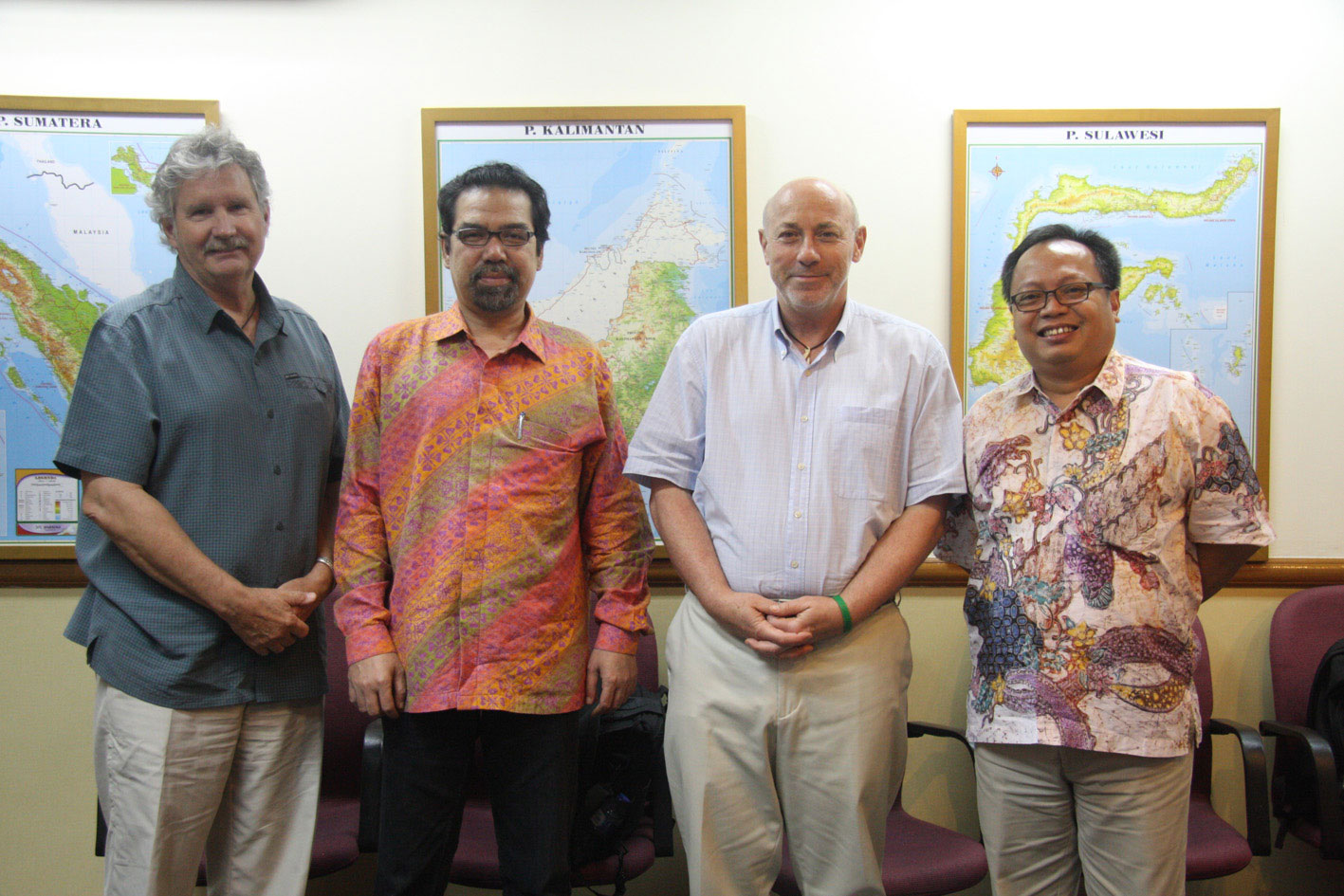APRIL asked to keep focus on conservation, plantation deadline
Indonesian pulp-paper maker meets with Stakeholder Advisory Committee
JAKARTA, 24 MARCH, 2014– APRIL should focus on its unprecedented forest conservation commitment and a 2019 deadline for harvesting mill wood exclusively from renewable plantations. That’s the recommendation to Asia’s second-largest pulp and paper manufacturer from an independent Stakeholder Advisory Committee.

Members of The Independent Stakeholder Advisory Committee (SAC). From left to right: Joe Lawson, Al Azhar, James Griffiths, Budi Wardhana
“These commitments are getting a lot of attention,” Committee Chairman Joe Lawson said today. “We’ll be watching them closely to make sure the company lives up to them.”
The Committee met last week for the first time since being created in January to oversee APRIL’s Sustainable Forest Management Policy. After a two-day policy review, it applauded APRIL’s pledge to support conservation areas that equal the size of its plantations – more than 450,000 hectares. The commitment is unrivaled in Indonesian forestry. The Committee also urged the company to meet or even accelerate its 2019 plantation target date.
The Committee of five independent forest and social experts will track implementation of APRIL’s policy implementation and recommend improvements. It stated during the first meeting that it will validate APRIL’s sustainability objectives, commitments, performance targets and timelines.
APRIL’s policy pledges the company to conservation, restoration and protecting forests considered to have High Conservation Value (HCV). APRIL manages sustainable forest plantations in Sumatra to supply timber for its pulp and paper mill.
The company’s policy places a moratorium on harvest or development activity in any forest areas that have not been assessed for HCV. It will not accept wood into its mill that comes from HCV forest areas.
APRIL’s wood supply is a combination of plantation timber augmented by harvests from degraded forests with low conservation value as defined by an HCV assessment process. The supplemental harvest is required until 2019, APRIL said, to fill a supply gap. APRIL said the gap developed as it slowed plantation development to conduct HCV forest assessments throughout its concessions.
APRIL’s forest policy calls for steadily increasing plantation supply between now and 2019. The Committee acknowledged the plan and urged the company to move more quickly, if possible.
Other key outcomes of the two-day policy review included:
• Recognition that APRIL’s policy is comprehensive and can be used as the basis for verifying the company’s sustainability commitments;
• A work process that the Committee will follow in overseeing APRIL’s policy;
• A commitment from APRIL to incorporate Committee recommendations;
• An agreement to hold Public Stakeholder Forums as necessary; and
• An independent year-end audit of APRIL’s sustainability performance.
“The creation of the Stakeholder Advisory Committee is a very positive development,” said Mr. Lawson, a veteran of 34 years in forestry. “The company’s policy addresses key sustainability issues and our aim is to provide a window into its performance.”
Mr. Lawson is on the Board of Directors of PEFC (Programme for Endorsement of Forest Certification), the world’s leading sustainable forest certification group. Other Stakeholder Advisory Committee members are:
• Mr. Al Azhar, a community leader in Sumatra’s Riau Province and Chief Executive of Lembaga Adat Melayu Riau (Malay Custom Institution of Riau), Pekanbaru, Indonesia. Mr. Azhar is Chief of the Asosiasi Tradisi Lisan (Oral Tradition Association), Riau.
• Mr. James Griffiths, Managing Director Forest Solutions Group at the World Business Council for Sustainable Development (WBCSD).
• Prof. Jeff Sayer, Professor of Development Practice at James Cook University, Cairns, Australia.
• Dr. Budi Wardhana, Director of Policy, Sustainability and Transformation at WWF Indonesia.



